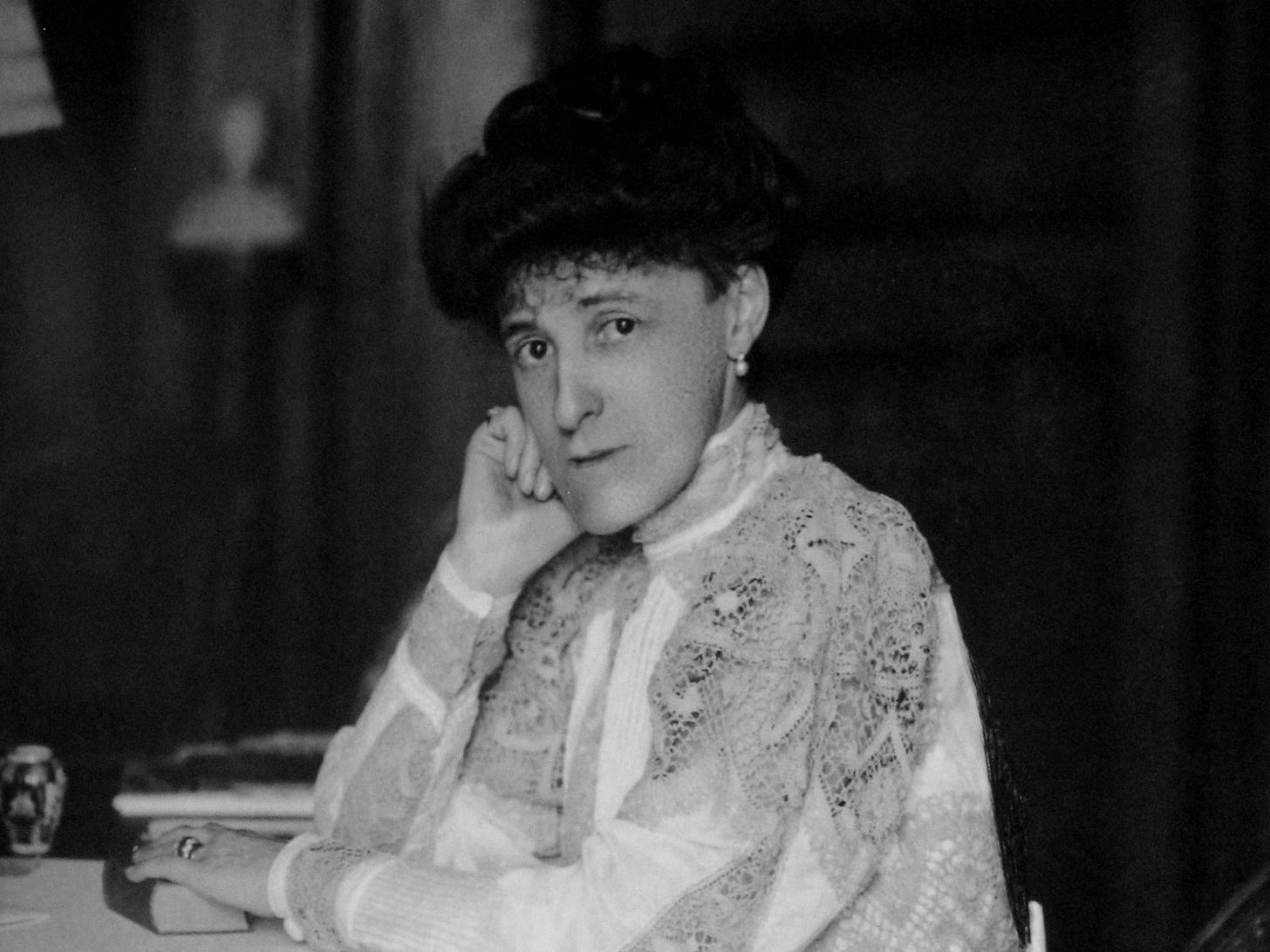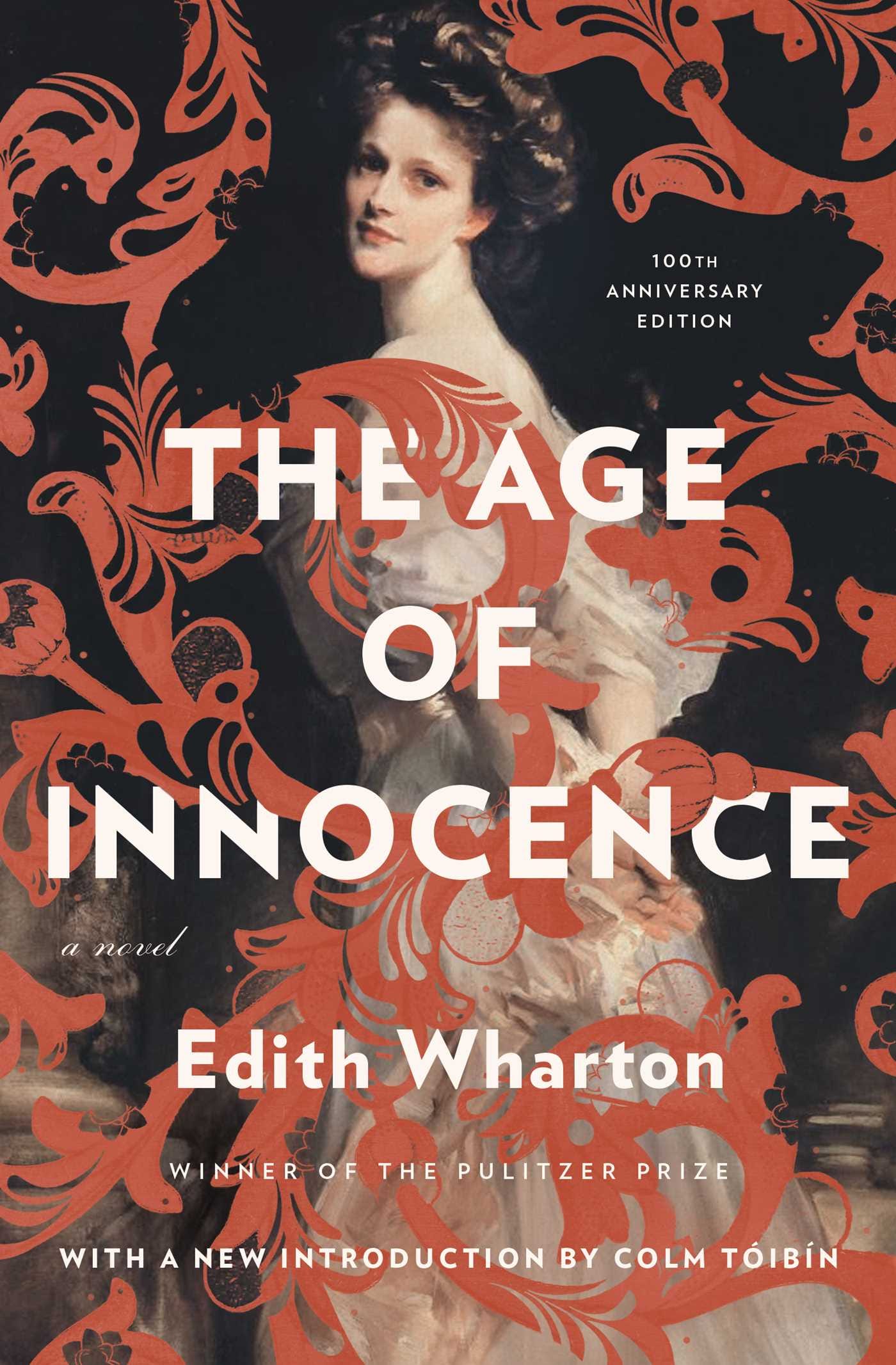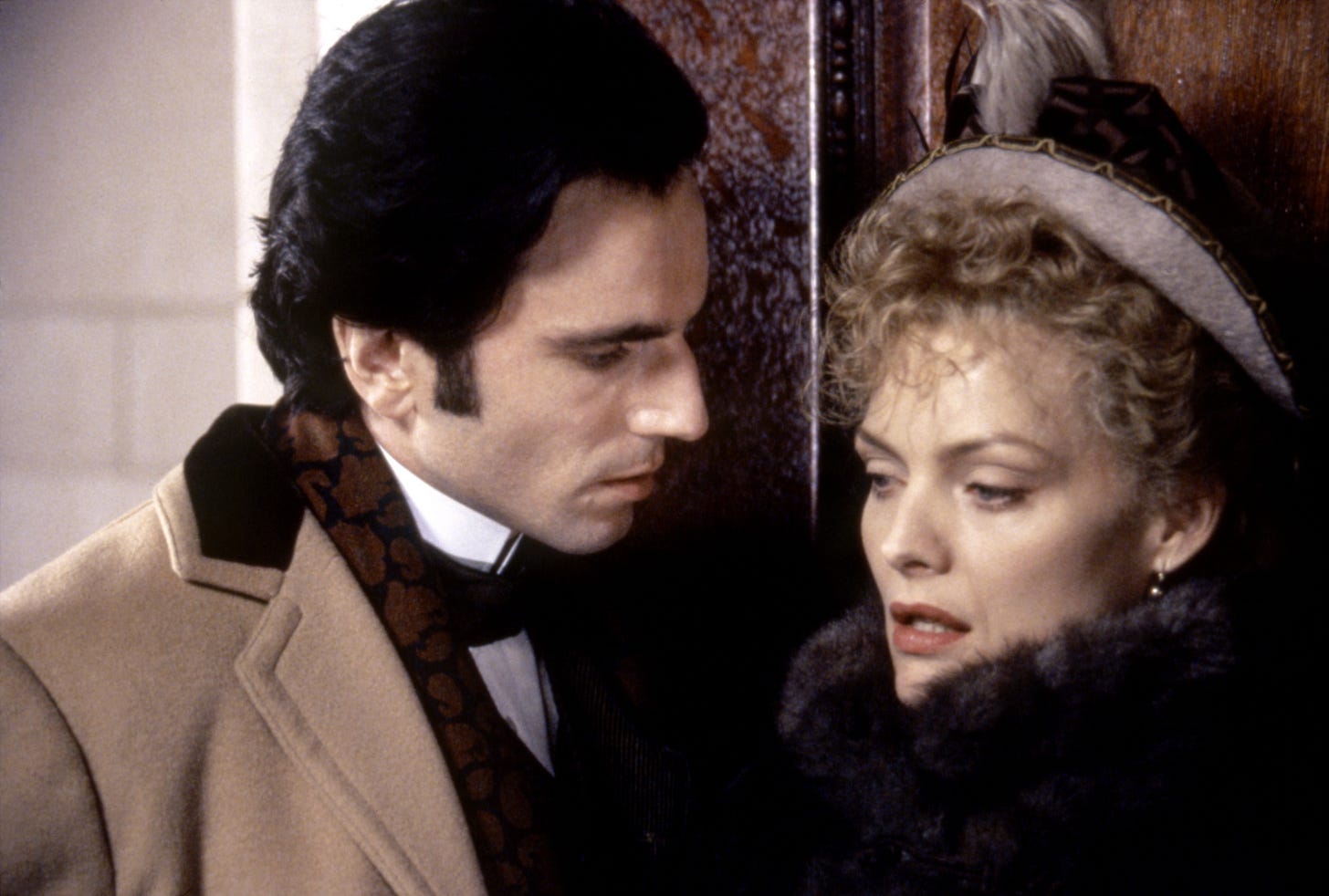Do You Want What You Want? Edith Wharton’s ‘The Age of Innocence’
Reviewing a Classic Story of Divided Affections
When Edith Wharton won the Pulitzer in 1921 for The Age of Innocence, she expressed dissatisfaction. “When I discovered that I was being rewarded . . . for uplifting American morals, I confess I did despair,” she wrote Sinclair Lewis.
The Pulitzer jury chose against Wharton’s novel. The jurors actually picked Lewis’s bestselling satire, Main Street, which took aim at small-town mores. But the Pulitzer board rejected their decision and instead extended the prize to Wharton, whose book supposedly offended common decency less than Lewis’s. Lewis regarded the move as “burglary.”
Wharton continued in her letter to Lewis, “When I found the prize sh[oul]d really have been yours, but was withdrawn because your book . . . had ‘offended a number of prominent persons in the Middle West,’ disgust was added to despair.”
Yeah, but I don’t believe her—not exactly. The Age of Innocence itself belies her statement.

Divided Affections
Set five decades before Wharton wrote it, in the 1870s, the novel is about many things—Old New York, societal pressure, the exclusivity of love, fear of the future, emotional repression, and more—but this question presents the hub on which the entire novel turns: Do you want what you want? No one struggles with the answer more than her smart, ambivalent protagonist, Newland Archer.
We’re told to follow our desires, to chase what we want, to listen to the inner voice that insists: there’s something more, there’s something better. But what if that voice isn’t always right? What if desire misleads? And what if what we want isn’t what we really want?
Newland imagines he’s self-aware, modern, even progressive. But he’s also a product of his environment, which is considerably more rigid and traditional than he prefers. Newland is engaged to marry May Welland, young heiress of one of the city’s better families. But then May’s cousin, the Countess Ellen Olenska, bursts onto the tightly structured social scene and pitches the status quo off balance.
She’s separated from her husband, a monstrous Polish nobleman, and returns home to New York in a state of penury and disarray. Beautiful, stylish, and intriguingly scandalous, she easily draws the interest of men. She hopes for a divorce and a clean start, but it’s soon clear that it won’t come easy.
And Newland? Naturally, he’s in love with her—or so he thinks. The realization comes slowly. At first he finds her trailing reputation problematic, out of place in the rarified air of the high society to which he belongs and where he seeks to solidify his place. Still, for the sake of the family to which he’s soon to join, he decides to defend her cause when called upon to do so.
At the same time he chafes under the expectations of his society. He longs for a cosmopolitan life of literature and travel. Will he have that with May, the template of a good New York society wife? His friends’ stultifying marriages provide little hope.
Whereas he expects
passionate and tender comradeship . . . such a picture presupposed, on her part, the experience, the versatility, the freedom of judgment, which she had been carefully trained not to possess; and with a shiver of foreboding he saw his marriage becoming what most of the other marriages about him were: a dull association of material and social interests held together by ignorance on the one side and hypocrisy on the other.
Not promising. But Ellen? Newland soon finds himself attracted to her. While he pushes May to accelerate the date of their wedding—the engagement is unbearably long to satisfy the many demands of upper-crust propriety and preparation—he feels drawn to Ellen and begins contriving reasons to see her.
The feeling is reciprocated, but their feelings are buried beneath familial loyalty and concern. As they move towards each other, they simultaneously pull apart. Their relationship becomes an affair of passionate trysts—in which nothing happens. In earlier drafts Wharton had the pair clandestinely consummate their relationship, but she abandoned that approach for tortured ambivalence, neither person feeling as though they could act on what they really want because . . . do they really want it?
Neither knows, neither is certain, though Newland has “moments when he felt as if he were being buried alive under his future.” May unknowingly forces their hand. When she contrives to accelerate the wedding day, per Newland’s stated desire, he caves—though he crumples the telegram on which the happy news arrives.
Newland goes through with his marriage to May, but it doesn’t lessen the tension between him and the countess. In fact, it only increases. And here is the point when you can almost believe Wharton’s confessed “despair” at “uplifting American morals.”But not so fast.
The Real Things of Life
The one person who actually seems to know what she wants is May. Though she strikes Newland as hopeless naive—increasingly so as the tension with Ellen builds—she’s anything but. She has her husband and she intends on keeping him.
Nothing about Newland’s entanglement with Ellen is publicly acknowledged. But need it be? “They all lived in a kind of hieroglyphic world,” as Wharton famously describes New York society, “where the real thing was never said or done or even thought, but only represented by a set of arbitrary signs.” But May is fluent in the language. She sees through it all and marshals the powers of her world to eject Ellen, sending her back to Europe with celebratory fanfare while quietly announcing her pregnancy to Newland.
Trapped!
The old ways win. And we might, given modern sensibilities, be tempted to see Newland as a tragic figure, someone who fails to get what he really wants, who fails to break free from the false constraints of his society, who fails to pursue his passion and realize his authentic desires. But Wharton doesn’t end the story there. She commits, maybe even against her own ambivalence, to those uplifting morals of which she supposedly despaired.

In two brief closing chapters we find that Newland commits himself to his marriage, to his children to his place in society, flawed as it might be. Some thirty years on, he sits in his library, “the room in which most of the real things of his life had happened,” remembering:
the moment he discovered he was to become a father; the christening of that first child, his boy Dallas;
when Dallas toddled across the floor burbling, “Dad,” as May laughed at the scene;
his daughter Mary announcing her own engagement and Newland kissing her through her veil before taking her to church for the wedding;
the plans he and May discussed for their children and their careers.
And more. Only by reluctantly sacrificing his passionate attachment to Ellen could Newland have built all of this with May, his real life, the one in which his children thrived and his contribution to his city was recognized and valued by all.
What We Want Most of All
After May is taken by pneumonia, Newland finds himself free to travel. He and Dallas—an up-and-coming architect—visit Paris. Ellen lives there, and Dallas surprises his father with an invitation to dine with their cousin. Amazingly, Dallas knows about the affair: “Wasn’t she . . . the woman you would have chucked everything for: only you didn’t.”
Newland is surprised by his son’s knowledge, disclosed, it turns out, on May’s deathbed. “She said she knew we were safe with you, and always would be,” says Dallas of himself and his siblings, “because once, when she asked you to, you’d given up the thing you most wanted.” Most wanted? Yes and no. He may have chosen in spite of himself, but Newland seems to have most wanted the life he actually lived.
When it comes time for dinner, he walks right up to Ellen’s door, and then turns away—as he did decades before, abandoning one love to embrace so much more.
Thanks for reading! If you enjoyed this post, please hit the ❤️ below, 💬 in the comments, and share it with a friend!
More remarkable reading is on its way. Don’t miss out. Subscribe. It’s free, and all the cool kids are doing it.
Don’t miss this:





The social sophistication of women who can quietly take the measure of a situation, especially one that includes a threat, and dispose of it neatly and discreetly always interests me. I haven't read the Age of Innocence for decades - and it was largely lost on me when I read it as a teenager, sadly - so I don't remember it well. However, your description of May efficiently exiting Ellen from her and Newland's life reminds me of the Baroness Schraeder in the Sound of Music. She knew what time it was when she beheld Maria awakening a genuine and long-dormant capacity for love and joy in Captain von Trapp, and being a smart and canny society woman, knew precisely which buttons to push to send Maria fleeing back to the abbey. She thought she had won, and it looked like she had, until the captain asserted what he actually wanted, which was a rich and genuine life with Maria and his children, not "in Vienna, in all your glittering salons, gossiping gaily with bores I detest, soaking myself in champagne, stumbling about to waltzes by Strausses" Love triangles and the life directions they represent are always interesting!
"They all lived in a kind of hieroglyphic world,” as Wharton famously describes New York society, “where the real thing was never said or done or even thought, but only represented by a set of arbitrary signs."
One could also say the same about Wharton's own writings. Her fiction implies more than it shows, and she leaves it to the reader to find and consider the implications.